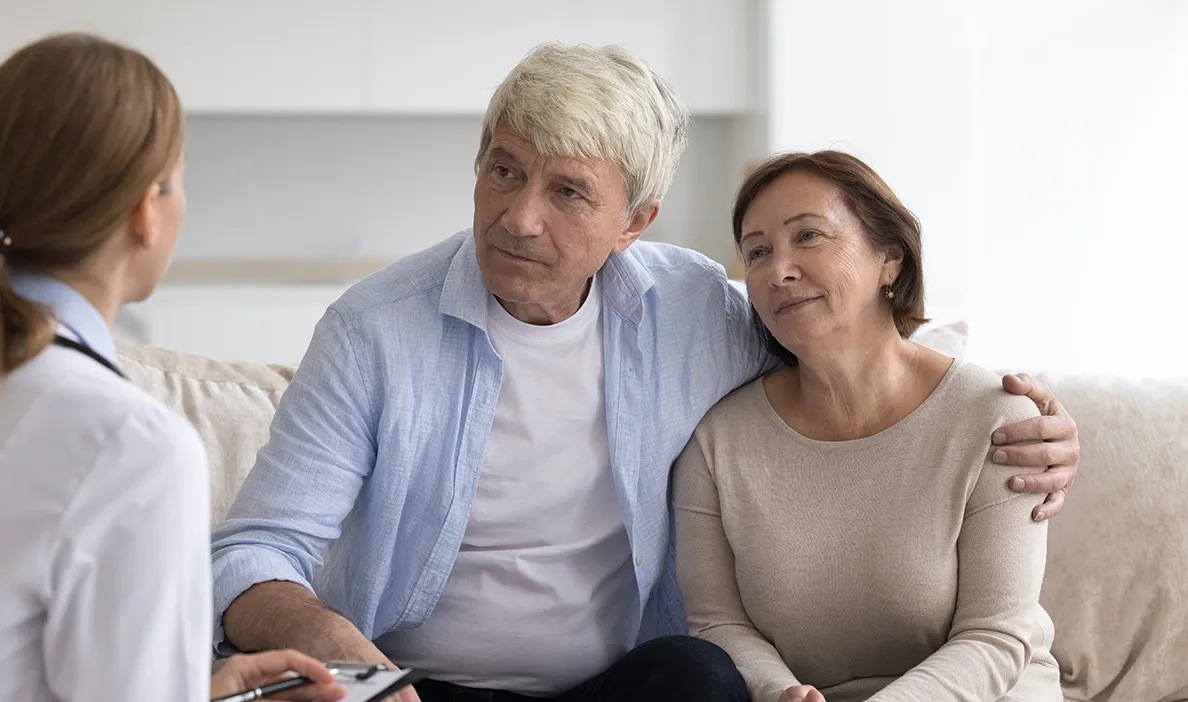Steroids are a natural substance made by our bodies. They have a lot of functions, such as helping our immune system to work and reducing allergies or inflammation.1 They even help to control our mood and behaviour.2
But they can also be made in a laboratory, as medicines, which can then be used as part of your cancer treatment.1
There is a lot to learn about steroids and their use in cancer treatment, so we have created this page to cover some of the key information you might need to know.
Why are steroids used in cancer treatment?
There are a lot of reasons why you might be given steroids as part of your cancer treatment. They can be used to:1-3
- Treat the cancer itself by destroying cancer cells, and make other treatments more effective
- Help you manage any side effects you might experience by helping your immune system to work
- Improve your appetite
- Reduce nausea or vomiting when having other cancer treatments
How will steroids be given to me?
Steroids may be given to you at any time during your cancer treatment journey, but most likely when you are first diagnosed, or before or after any other treatment.3
Steroids can be taken in a lot of different ways, such as:1,2
- Tablets
- Liquids
- An injection into your arm
- Eye drops
- A cream you can rub around the affected area
How often you have steroids depends on what they are being used for.1 Whichever way you have been asked to take steroids, it is important that you take them exactly as your doctor has told you to.
What are the side effects of steroids?
As with all medicines, using steroids can lead to some side effects. You may experience some, or none at all.1-3
Not taking your steroids as you have been told to can also cause some side effects. This is because taking steroids stops your body from making its own supply. If you suddenly stop taking them, it can lead to symptoms such as dizziness, feeling or being sick, diarrhoea and flu-like symptoms.2
When it comes to stopping your steroid treatment, your doctor will help you to gradually cut down your steroid use to help prevent these side effects.1
If you do experience any new, ongoing or worsening side effects, it is important to tell your doctor as soon as possible.
Getting a steroid safety card
If you need to use steroids for a long period of time, you will be given an NHS Steroid Emergency Card.1
In the case of an emergency, these cards help doctors or other healthcare staff:1
- Make sure you keep getting the right steroid treatment
- Manage your side effects properly
Sticking to your treatment plan
We understand that if you need to use steroids for a long period of time, you might begin to lose motivation, especially if the side effects become difficult to manage.4
If you’re looking for practical tips that may help you manage side effects of cancer treatment, hover over the ‘Living Well’ option in the menu to learn more. Remember, these tips are to support you, but your healthcare provider is always the best resource for managing side effects effectively.
References
- Macmillan. Steroids. Available at: https://www.macmillan.org.uk/cancer-information-and-support/treatments-and-drugs/steroids [Accessed June 2025].
- Cancer Research UK. Steroids (dexamethasone, prednisolone, methylprednisolone and hydrocortisone). Available at: www.cancerresearchuk.org/about-cancer/treatment/drugs/steroids [Accessed June 2025].
- MD Anderson Cancer Center. How do steroids work? Available at: www.mdanderson.org/cancerwise/how-do-steroids-work--in-cancer-treatment.h00-159385890.html [Accessed June 2025].
- Cancer Research UK. Mental health during and after cancer treatment. Available at: https://www.cancerresearchuk.org/about-cancer/coping/mental-health-cancer/during-and-after-cancer-treatment [Accessed June 2025].






